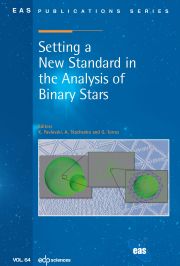No CrossRef data available.
Article contents
Astronomy. Science or culture? Fact andfiction
Published online by Cambridge University Press: 14 January 2006
Abstract
Astronomy is often said to be one of the oldest sciences of humanity. But this statement disregards the fact that the word “science”, as it is understood today, can hardly be used to describe the astronomical practices of, for example, the builders of megaliths or the ancient Egyptians. This type of astronomy, however, was always “culture” as it was closely linked to both religious and profane practices that led to better use of resources and greater understanding of the cosmos. Cultural astronomy, in its two branches of archaeoastronomy and ethnoastronomy, studies these practices. Since these are disciplines that lie somewhere between social sciences, especially archaeology and anthropology from which they obtain their epistemology, and classic astronomy, from which they obtain their mathematical tools, it is not always easy to carry out research in them. It is therefore often essential to start out by distinguishing between fact and fiction.
- Type
- Research Article
- Information
- Copyright
- © EAS, EDP Sciences, 2005


